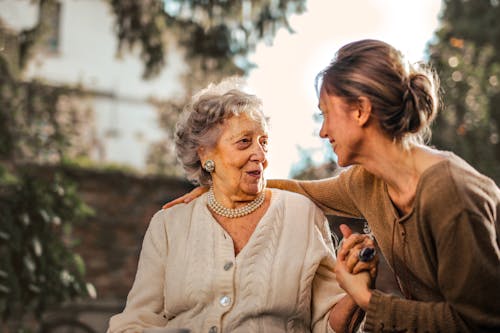
Many older people - just like younger people - suffer from mental health problems. About 25 percent of those over 65 are affected by mental illness. About half of the diseases are mild, the other half so severe that treatment is necessary. Mental disorders in people of old age are often not recognized in the first place. visit https://nightmaresolution.com to buy medications for anxiety disorder, chronic pain, and ADHD online, even without a prescription

Older people are often more reluctant to openly communicate with the doctor or relatives, be it out of fear of being stigmatized or declared crazy, or because they think they have to pull themselves together. In many cases, emotional problems are also hidden behind physical problems. Some already have a long history of illness, others developmental symptoms, or even a mental illness for the first time at an advanced age. See how to buy Xanax online without a prescription
By and large, the symptoms of mental illness in the elderly are similar to those in younger adults. The treatment approaches usually do not differ significantly either. In spite of this, mental illnesses in the elderly are often not treated properly because, for example, general practitioners do not recognize the signals or they prescribe psychotropic drugs very quickly.
"According to an investigation by the Gmünder Ersatzkasse, the frequency of psychotherapies drops sharply from the age of 60 at the latest, from the age of 75 these are hardly used, although they are also effective in older people." These results are confirmed by a study on outpatient psychotherapeutic Treatment of the elderly by resident psychotherapists. Here only 5% of the patients were over 60 years old - with a population share of 20%. 90% of the psychotherapists surveyed said that they do not treat a single client over the age of 60.
Buy Xanax Online Without Prescription
For a long time, science and society were shaped by the image that getting older is almost automatically linked to a general decline in physical, mental, and psychological abilities. Many scientific studies have now corrected this false picture of the so-called “deficit model”. For example, the “Baltimore Longitudinal Aging Study” comes to the conclusion that aging does not go hand in hand with the loss of psychological and physical abilities in a general way, but is a very individual process. See Where to buy Oxycodone online without a prescription
Numerous recent scientific surveys show that aging people perceive aging more positively if they can continue to shape their lives actively and independently for as long as possible. The basis of such “self-determined” aging is maintaining or regaining health, including mental health.
Even in old age, it is “still” worthwhile to seek professional help with psychological problems. However, there are some peculiarities in older people, which will be discussed in more detail in this article.
A special feature of older people is that older people are ill more often and for longer than younger people and often suffer from several diseases at the same time. The psychological stresses associated with being ill can encourage the occurrence of a mental disorder.
Furthermore, older people have to cope with very different loss situations. Physical health, physical attractiveness, and physical and mental abilities (such as sight, hearing, memory, mental speed) gradually decrease with age - but it is also possible that a serious illness is unexpectedly discovered. The death of loved ones and the withdrawal from professional life are losses that older people have to cope with. In addition, new goals and future plans are often lacking in old age. A mental disorder often develops, especially after drastic loss experiences.

The most common mental illnesses in old age are depression and dementia. In addition, anxiety disorders, sleep disorders, and the abuse of alcohol and medication often occur here. Manias and schizophrenic or delusional disorders, on the other hand, tend to be rare in old age.
Diagnosing mental illness is made difficult by the fact that older people often suffer from a variety of physical illnesses. In addition, their physical and mental abilities gradually decline, it comes to a slowing down and less mental adaptability. These changes sometimes make it difficult to clearly differentiate a mental disorder from normal age changes or a physical illness. Furthermore, when making a diagnosis, it must be taken into account that some medications can also lead to psychological symptoms, for example, confusion or forgetfulness.